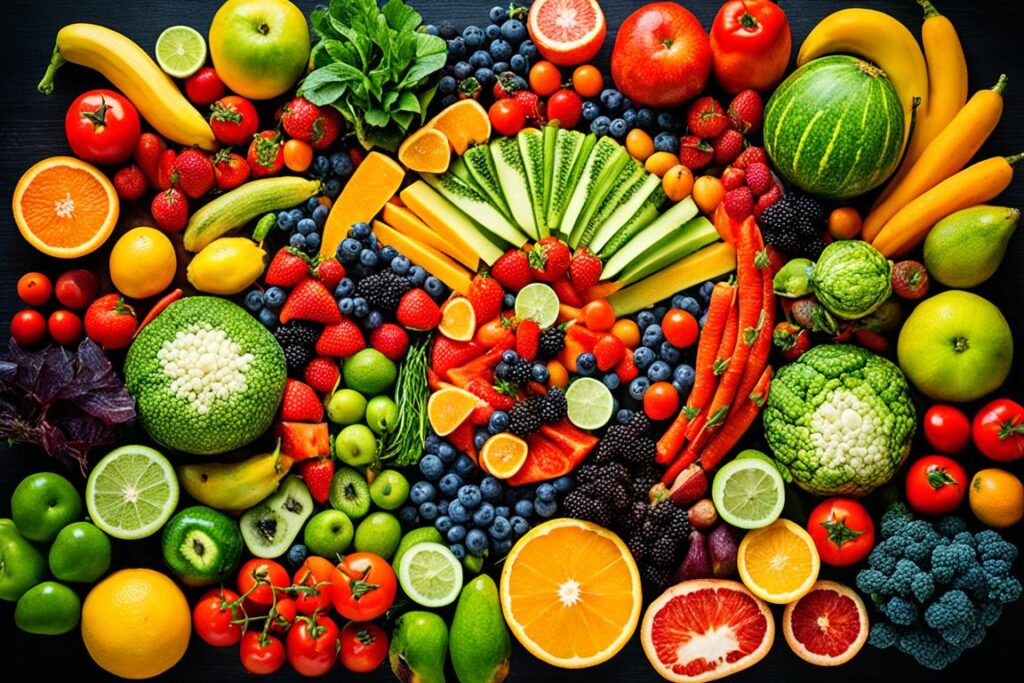Welcome to our guide on specialist foods, where we delve into the world of unique and flavorful culinary delights. From gluten-free and dairy alternatives to ethnic foods and gourmet specialties, the specialist food market offers a wide array of options to cater to different dietary needs and preferences. Whether you’re a health-conscious consumer seeking organic and vegan options, or a food enthusiast looking to indulge in artisanal products and culinary innovations, we’ve got you covered.
In this article, we’ll take a closer look at the challenges faced by companies in the specialist food industry, the benefits of dietary specialization in herbivores, and the implications for ecology and evolution. Let’s start by exploring the growth strategies and market positioning of specialist food companies.
Key Takeaways:
- Specialist foods encompass a range of dietary options, including gluten-free, dairy alternatives, ethnic foods, and gourmet specialties.
- Health-conscious consumers are driving the demand for vegan options and organic foods in the specialist food market.
- Artisanal products and culinary innovations are gaining popularity, offering unique and flavorful choices.
- Companies in the specialist food industry need to carefully consider market positioning and overcome cultural barriers for successful growth.
- Understanding dietary specialization in herbivores is crucial for studying ecological dynamics and coevolution within ecosystems.
The Benefits of Dietary Specialization
Dietary specialization in herbivores plays a significant role in ecological dynamics. Understanding the concept of dietary specialization and its implications requires a clear definition of niche breadth.
The proposed specialization key for mammalian herbivores categorizes them as either specialist herbivores or generalist herbivores based on the breadth of their realized and fundamental niches.
In this context, obligatory specialists have narrow realized niches, limiting their flexibility to expand their diet. On the other hand, facultative specialists have the ability to adapt and include a wider range of foods when environmental conditions allow.
Similarly, herbivores can be classified as facultative generalists or obligatory generalists. Facultative generalists have broad fundamental niches, enabling them to consume a wide variety of foods, while obligatory generalists have wide realized niches but narrow fundamental niches.
Chemical characteristics and morphological adaptations are crucial factors that determine the palatability and nutritional value of food items for herbivores. These characteristics create ecological constraints for dietary specialization.
“Understanding dietary specialization is crucial for studying coevolution, habitat selection, and herbivory dynamics in ecological communities.” – Ecological researcher, Dr. Jane Thompson
By studying dietary specialization, scientists can gain insights into coevolutionary relationships, habitat preferences of herbivores, and the dynamics of herbivory within ecological communities.
The Realized Niche and Fundamental Niche
The realized niche refers to the set of resources that a herbivore can effectively exploit in its environment. It represents the actual range of resources utilized by an organism.
In contrast, the fundamental niche describes the full range of resources that a herbivore is physiologically capable of utilizing, regardless of whether it actually exploits them in its environment.
Ecological Constraints on Dietary Specialization
Chemical characteristics of food items, such as toxins or low nutrient content, can limit the options available to herbivores. In response, some herbivores have developed morphological adaptations to overcome these ecological constraints and specialize on specific plant species.
These adaptations may include specialized dentition, digestive systems, or unique behaviors that allow certain herbivores to exploit resources that may be challenging for others.
However, ecological constraints can also limit the ability of herbivores to specialize further. The availability and distribution of food resources, competition with other herbivores, and changing environmental conditions all contribute to the complexities of dietary specialization in ecological communities.
Overall, understanding the benefits and constraints of dietary specialization in herbivores provides valuable insights into the intricate dynamics of ecological systems and contributes to our knowledge of species interactions and biodiversity.
Conclusion
Defining and measuring dietary specialization in mammalian herbivores has been challenging due to inconsistent definitions and criteria. However, the proposed specialization key provides a valuable framework for categorizing herbivores based on the breadth of their realized and fundamental niches.
The concept of specialization plays a significant role in understanding the evolution of the niche and the selective pressures on diet and habitat selection. The ecological implications of dietary specialization extend to coevolution, community dynamics, and the trade-offs between performing a few activities well or many poorly.
Having a clear definition of dietary specialization is crucial for facilitating communication among scientists and enabling comparisons between studies and taxa. However, further research is needed to explore the nature of evolutionary trade-offs required for specialization and generalization, the effects of environmental conditions on niche breadth, and the consequences of dietary specialization for individual fitness and community dynamics.



